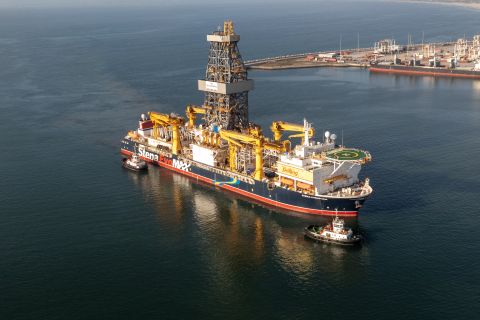Facing looming debt maturities as well as a lawsuit with a pipeline operator, the board of Chesapeake Energy Corp. voted in favor of a reverse stock split in hopes of boosting its share price.
Chesapeake has continued to struggle with a mountain of debt it accumulated during the early years of the U.S. shale revolution. Once the second-largest gas producer in the U.S., the Oklahoma City-based company ended 2019 with about $9 billion in total debt and soon could have its stock delisted from the New York Stock Exchange (NYSE).
UPDATE:
Chesapeake Energy Lays Off 200 Oklahoma Employees
The shale pioneer has also found itself in the midst of a lawsuit with a pipeline operator for allegedly defaulting on a contract that had been renegotiated weeks earlier, Reuters reported.
The suit against Chesapeake, filed in Oklahoma state court on April 3, seeks $48.8 million and expenses for breach of contract, according to the Reuters report on April 13.
Chesapeake also reportedly hired law firm Kirkland & Ellis and financial advisers Rothschild & Co. as restructuring advisers last month after the recent oil market collapse further crippled the debt-laden company. Several other U.S. shale producers have followed suit, including Chaparral Energy Inc. and Gulfport Energy Corp., both of which have been reported to be worked with debt restructuring advisers.
A majority of the company’s shareholders voted for a 1-for-200 reverse stock split during a special shareholder meeting on April 13. The reverse stock split, expected to help raise Chesapeake’s stock price, is set to become effective April 14, according to a company release.
Trading of Chesapeake’s stock has fallen 81% so far this year and is in danger of being delisted due to NYSE listing requirements.
The NYSE requires a stock’s average trading price to be above $1 per share over a 30-day period. Chesapeake’s stock price closed at $0.16 per share on April 13.
Chesapeake Energy holds operating positions in the Rockies, Midcontinent, South Texas and Appalachia regions. In February, the company said it expected to cut its 2020 capex by about 30% and had plans for noncore asset sales.
Reuters contributed to this article.
Recommended Reading
E&P Highlights: March 15, 2024
2024-03-15 - Here’s a roundup of the latest E&P headlines, including a new discovery and offshore contract awards.
Rystad: More Deepwater Wells to be Drilled in 2024
2024-02-29 - Upstream majors dive into deeper and frontier waters while exploration budgets for 2024 remain flat.
E&P Highlights: Feb. 16, 2024
2024-02-19 - From the mobile offshore production unit arriving at the Nong Yao Field offshore Thailand to approval for the Castorone vessel to resume operations, below is a compilation of the latest headlines in the E&P space.
E&P Highlights: March 4, 2024
2024-03-04 - Here’s a roundup of the latest E&P headlines, including a reserves update and new contract awards.
Stena Evolution Upgrade Planned for Sparta Ops
2024-03-27 - The seventh-gen drillship will be upgraded with a 20,000-psi equipment package starting in 2026.





